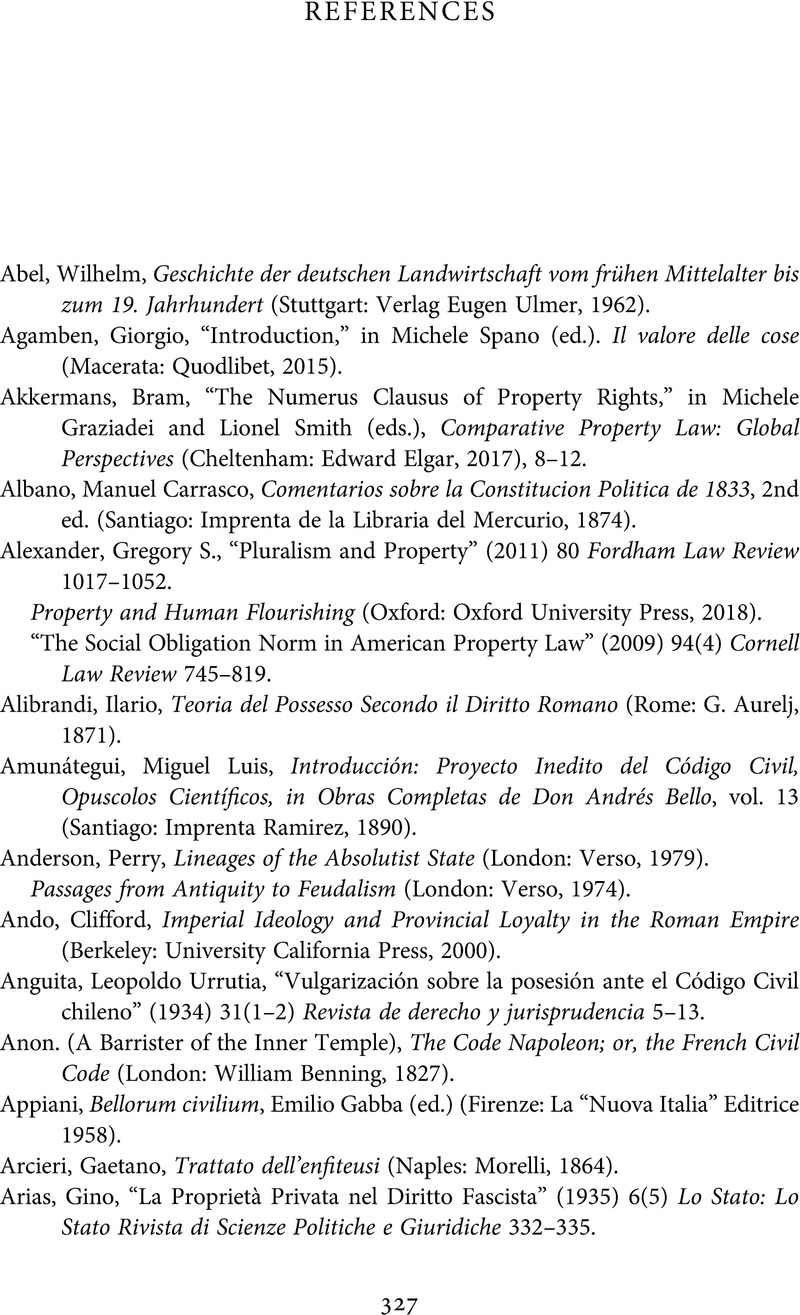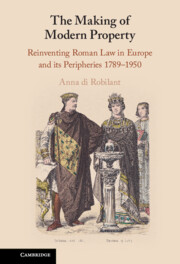Book contents
- The Making of Modern Property
- The Making of Modern Property
- Copyright page
- Dedication
- Contents
- Acknowledgments
- Introduction
- 1 What Roman Antiquity Had to Offer
- 2 The Foundations of Romanist-Bourgeois Property
- 3 Crafting Romanist-Bourgeois Property
- 4 Reform, Not Revolution
- 5 The Tensions of Absolute Property
- 6 Roman Dominium in the Republics of Latin America
- 7 The Social Critics
- Conclusions
- References
- Index
- References
References
Published online by Cambridge University Press: 13 July 2023
- The Making of Modern Property
- The Making of Modern Property
- Copyright page
- Dedication
- Contents
- Acknowledgments
- Introduction
- 1 What Roman Antiquity Had to Offer
- 2 The Foundations of Romanist-Bourgeois Property
- 3 Crafting Romanist-Bourgeois Property
- 4 Reform, Not Revolution
- 5 The Tensions of Absolute Property
- 6 Roman Dominium in the Republics of Latin America
- 7 The Social Critics
- Conclusions
- References
- Index
- References
Summary

- Type
- Chapter
- Information
- The Making of Modern PropertyReinventing Roman Law in Europe and its Peripheries 1789–1950, pp. 327 - 354Publisher: Cambridge University PressPrint publication year: 2023



